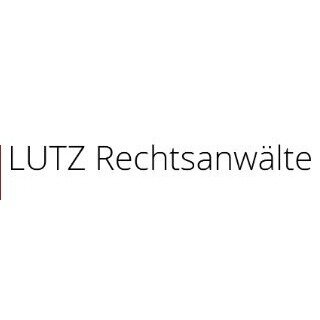Best Structured Finance Lawyers in Germany
Share your needs with us, get contacted by law firms.
Free. Takes 2 min.
Or refine your search by selecting a city:
List of the best lawyers in Germany
About Structured Finance Law in Germany
Structured finance in Germany refers to complex financial transactions that go beyond traditional lending or investing. These transactions usually involve pooling various financial assets, using derivatives or securitization, and creating tailored financing solutions for corporations, financial institutions, or other entities. In the German context, structured finance plays a significant role in facilitating large infrastructure projects, real estate investments, and corporate acquisitions. The practice requires an in-depth understanding of both German law and international regulations, as such transactions often have cross-border elements. Structured finance law in Germany blends principles from banking, securities, tax, insolvency, and contract law to create legal frameworks that promote both flexibility for businesses and protection for investors.
Why You May Need a Lawyer
There are multiple scenarios where seeking legal advice in structured finance becomes crucial. If you are a corporation looking to raise capital through securitization or issue asset-backed securities, the legal landscape is intricate and requires expert guidance. Investors and financial institutions participating in structured products must ensure compliance with German and EU regulations. Legal representation can also be indispensable when structuring cross-border transactions, navigating tax implications, or addressing regulatory approvals from the Federal Financial Supervisory Authority (BaFin). Additionally, in the event of restructuring debt, handling distressed assets, or managing defaults, an experienced lawyer can help safeguard your interests and ensure proper documentation and risk management.
Local Laws Overview
Germany’s structured finance market is primarily governed by a range of local and European laws. The key legal aspects include:
- Banking Act (Kreditwesengesetz or KWG) - Regulates banking and financial services including licensing requirements and supervision.
- Securitization - Asset-backed securities and cover pools are regulated both by local laws and the EU Securitization Regulation (Regulation EU 2017/2402).
- Securities Law - The German Securities Trading Act (Wertpapierhandelsgesetz or WpHG) and the EU Prospectus Regulation apply to public offerings and trading.
- Taxation - Tax rules affecting structured finance can be complex, impacting both the structuring and profitability of transactions.
- Insolvency Law - German Insolvency Code (Insolvenzordnung) governs the priority of creditors’ claims, which is central to structured finance deals.
- BaFin Supervision - The Federal Financial Supervisory Authority (BaFin) oversees capital markets, ensuring regulatory compliance and consumer protection.
- European Influence - EU Directives and the Capital Requirements Regulation (CRR) have a direct effect on structured finance in Germany, especially in terms of transparency, risk retention, and investor protection.
Non-compliance with any of these legal aspects can lead to severe penalties, loss of investor confidence, or invalidation of deals.
Frequently Asked Questions
What is structured finance?
Structured finance involves complex financial instruments and techniques, such as securitization or derivatives, to raise capital or manage risks that are not easily addressed with traditional financing.
Who typically uses structured finance in Germany?
Corporations, banks, insurance companies, real estate developers, and public institutions commonly engage in structured finance transactions in Germany, often seeking large-scale capital or risk management.
What are asset-backed securities?
Asset-backed securities (ABS) are financial instruments backed by a pool of assets, such as loans or receivables, allowing originators to transfer risks and liquidity to investors.
What is the role of BaFin in structured finance?
BaFin supervises and regulates financial markets in Germany, including the approval of certain structured finance transactions, monitoring compliance, and ensuring investor protection.
Is securitization legal in Germany?
Yes, securitization is permitted in Germany but must meet requirements under German law as well as EU Securitization Regulation, focusing on transparency, risk retention, and legal structure.
What risks are associated with structured finance?
Risks include credit risk, market risk, legal risk, operational risk, and reputational risk. Legal advice helps identify, mitigate, and appropriately allocate these risks within transaction documents.
What documents are typically involved in structured finance deals?
Key documents include offering memoranda, prospectuses, pooling and servicing agreements, security agreements, trust arrangements, and various disclosure statements.
Do structured finance transactions require regulatory approval?
Many do, particularly those involving public offers of securities or sophisticated cross-border structures. BaFin or other authorities may need to approve documentation and processes.
Are there tax implications in structured finance?
Yes, German tax law impacts the structure and efficiency of these transactions. Legal and tax advisors are essential to avoid adverse tax consequences such as double taxation or withholding tax issues.
How can a lawyer assist in a structured finance transaction?
A lawyer can advise on transaction structure, draft and negotiate documentation, secure regulatory approvals, identify risks, ensure regulatory compliance, and help resolve disputes if issues arise.
Additional Resources
For those seeking further information or help, several organizations and governmental bodies are key:
- Federal Financial Supervisory Authority (BaFin) - The main regulator for financial services and structured finance transactions in Germany.
- German Banking Association (Bundesverband deutscher Banken) - Offers resources and information on banking practices, including structured finance.
- European Central Bank (ECB) - Provides guidance and regulations applicable across the Eurozone, including Germany.
- German Bar Association (Deutscher Anwaltverein) - Can help you find qualified lawyers specializing in finance law.
- Chamber of Commerce - Provides business services that sometimes include legal and financial advisory support for structured finance.
Next Steps
If you are considering or already involved in a structured finance transaction in Germany, take the following practical steps:
- Assess the scale, complexity, and legal implications of your financing needs.
- Gather all pertinent documentation such as financial statements, asset details, and intended transaction structures.
- Consult with a qualified lawyer specializing in structured finance and German financial regulation as early as possible.
- Prepare to discuss your objectives, timelines, and any cross-border considerations with your legal advisor.
- Stay informed about local and EU legal developments that might affect your transaction.
- If in doubt, contact one of the listed regulatory or professional bodies for further guidance or to verify the credentials of your advisors.
With the right legal support, you can navigate the structured finance landscape in Germany safely and efficiently, helping your business achieve its financial goals while staying compliant with all necessary regulations.
Lawzana helps you find the best lawyers and law firms in Germany through a curated and pre-screened list of qualified legal professionals. Our platform offers rankings and detailed profiles of attorneys and law firms, allowing you to compare based on practice areas, including Structured Finance, experience, and client feedback.
Each profile includes a description of the firm's areas of practice, client reviews, team members and partners, year of establishment, spoken languages, office locations, contact information, social media presence, and any published articles or resources. Most firms on our platform speak English and are experienced in both local and international legal matters.
Get a quote from top-rated law firms in Germany — quickly, securely, and without unnecessary hassle.
Disclaimer:
The information provided on this page is for general informational purposes only and does not constitute legal advice. While we strive to ensure the accuracy and relevance of the content, legal information may change over time, and interpretations of the law can vary. You should always consult with a qualified legal professional for advice specific to your situation.
We disclaim all liability for actions taken or not taken based on the content of this page. If you believe any information is incorrect or outdated, please contact us, and we will review and update it where appropriate.
Browse structured finance law firms by city in Germany
Refine your search by selecting a city.













